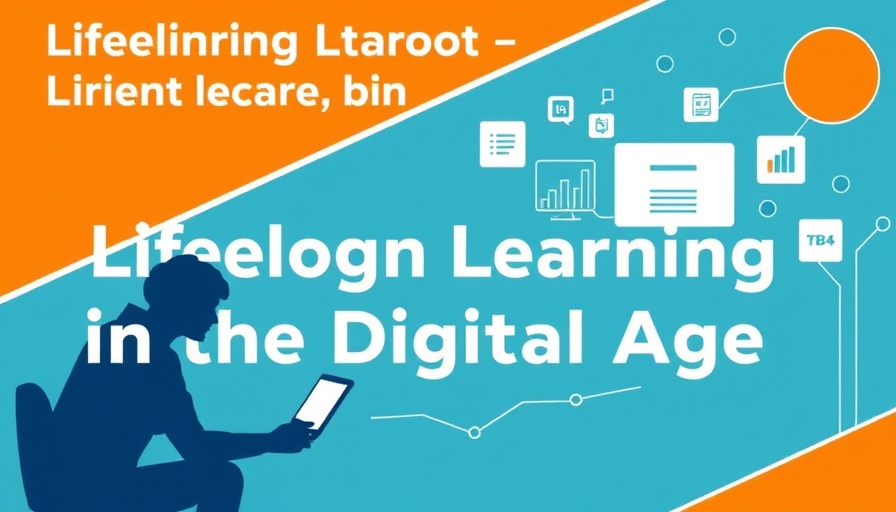
Embracing Technology for Lifelong Learning
In today's fast-paced digital landscape, continuous learning is not just an option for those aged 30 to 65—it is a necessity. Mental agility, as demonstrated by numerous studies, correlates positively with various aspects of well-being, including cognitive health and emotional resilience. A compelling analysis published in 2025 highlighted that 137 scientific papers involving over 400,000 older adults affirm that engaging with technology can bolster brain health, fend off cognitive decline, and ward off dementia. These insights underscore the transformative power of digital learning tools available right at our fingertips.
Why Lifelong Learning Is Crucial
The generational gap in digital literacy is narrowing, yet the approach to learning remains distinct. Younger individuals grapple with fleeting attention spans due to social media's rapid content consumption. In contrast, older adults possess the advantage of utilizing technology not merely for entertainment, but for enriching knowledge. Research confirms that structured digital learning enhances memory retention and brain function, offering profound benefits to overall well-being. For this demographic, embracing lifelong learning is key to maintaining cognitive vitality.
Top Apps for Lifelong Learning
With numerous applications available, selecting an effective digital learning tool can feel overwhelming. Below, we spotlight several user-friendly applications designed to engage and educate:
- BrainHQ: Priced at up to $14/month or $96/year, BrainHQ is lauded for its scientific validation, featuring over 100 published studies showing improved memory outcomes for older adults. Its platform adapts to various skill levels, fostering a personalized learning environment.
- Duolingo: This playful language-learning app is free with ads or available for $12.99/month with Super Duolingo. It encourages users to learn at their own pace, providing a non-pressured way to explore over 40 languages.
- Sky Guide: Priced at $2.99/month, it turns your smartphone into an interactive stargazing tool, allowing users to learn about constellations and celestial bodies through augmented reality, enhancing curiosity and exploration.
- Blinkist: With an annual fee of $79-$139, Blinkist condenses thousands of nonfiction books into concise, digestible formats, helping users engage with contemporary ideas conveniently.
- Mimo: Starting free, with paid plans up to $24.99/month, Mimo demystifies coding by breaking it into manageable exercises suitable for absolute beginners. This skill can be advantageous regardless of age, adding marketable value to one’s profile.
- Senior Planet: Offering a range of complimentary online classes, Senior Planet caters specifically to older adults, covering diverse subject matters from technology to the arts, fostering community engagement and connection.
Future Trends in Lifelong Learning
As we look ahead, the integration of artificial intelligence into educational tools will likely personalize the learning experience even further. Future applications may utilize machine learning algorithms to adapt content based on individual learning preferences and historical engagement patterns, leading to even more effective outcomes for users.
Overcoming Challenges in Digital Learning
Despite the plethora of benefits, some adults may feel intimidated by technology. The key to overcoming these challenges lies in gradual exposure and social connectivity. Community centers, libraries, and online forums can serve as invaluable resources where individuals can seek support and encouragement as they embark on their learning journey.
The Emotional Connection to Learning
For many in the 30 to 65 age range, engaging with new topics through digital platforms cultivates not just mental sharpness but also a profound sense of purpose. Moreover, as cognitive scientists advocate, a well-nourished intellect through lifelong learning can lead to improved mood, reduced feelings of isolation, and enhanced satisfaction in everyday life.
Take Action: Start Your Learning Journey
It’s time to prioritize mental engagement as a critical aspect of health and longevity. Take charge of your cognitive health by exploring the various applications available that suit your interests and learning styles. Dive into a new language, understand the cosmos, or sharpen your memory. The adventure of lifelong learning awaits you!
 Add Row
Add Row  Add
Add 




Write A Comment